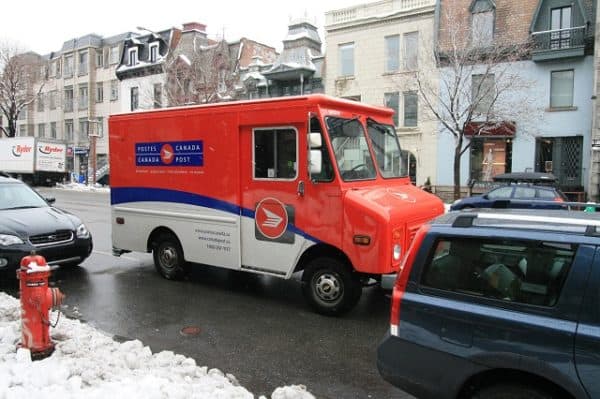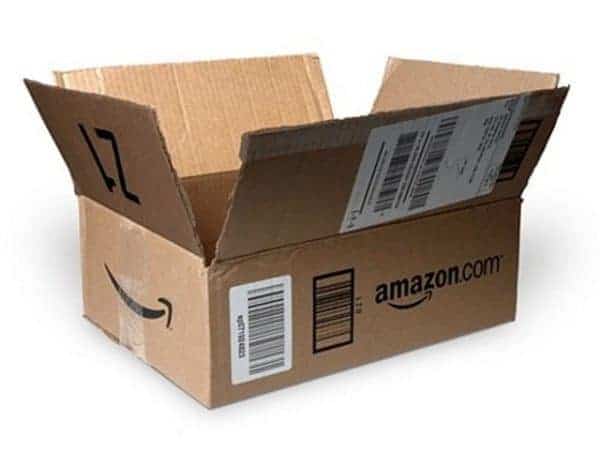

Retail juggernaut Amazon is poised to become its own delivery service, a move that could prove to be the final blow for Canada Post, which now relies more than ever on parcel delivery for its bread and butter.
Once again, Amazon is showing the world that its ambitions are truly bottomless, having just announced the acquisition of U.S. grocery chain Whole Foods for $13.7 billion USD. Not happy with just owning its own online grocery store, Amazon Fresh delivery, the company is said to be interested in having bricks and mortar stores to further boost its online business by providing local distribution hubs for faster delivery.
“Whole Foods Market has been satisfying, delighting and nourishing customers for nearly four decades – they’re doing an amazing job and we want that to continue,” says Jeff Bezos, Amazon founder and CEO in a statement.
And Amazon’s expansion into more products and services, coupled with worldwide increases in costs for parcel delivery, have made the company’s steps toward developing its own logistics network seem all the more reasonable. From its fleet of Amazon Prime Air planes to the construction of a massive cargo hub in Kentucky (set for over 200 flights daily) to its research into drone delivery, all signs point toward Amazon further cutting ties with the big courier companies like UPS and FedEx.
Which means big trouble up North for Canada Post, the crown corporation which is now fully dependent on parcel delivery — and on Amazon, its biggest customer— to stay afloat.

Amazon threat: Canada Post is changing, not dying, says union president…
“We’ve pointed out all along that the postal industry is a changing industry, not a dying industry,” says Mike Palecek, National President of the Canadian Union of Postal Workers, who spoke to Cantech Letter about Canada Post’s transition to parcel delivery in the age of e-commerce.
“It’s been a rough change, for sure. I don’t think we’ve had a management team with a far-reaching vision,” says Palecek. “I think their efforts have more been around dismantling the post office.”
“Across the country, we have overburdened letter carriers because these increased parcel volumes aren’t necessarily accounted into their routes,” says Palecek. “So we have people doing overtime and Canada Post is scrambling to try and get their real estate to keep up with the increase in parcel volume.”
Letter mail, as we all know, has mostly become a thing of the past, yet so far, that hasn’t translated into the death knell for Canada Post, thanks to parcels. Last year, for instance, the company delivered 8.9 billion pieces of mail, down from close to 12 billion in 2008, but parcel volume has taken up the slack. Canada Post’s first quarter earnings for 2017, for example, showed a $44-million profit before tax, buoyed directly by growth in parcels, which saw a 10.8 per cent increase over the same period last year.
But what’s that about putting eggs in baskets?

The issue is definitely on radar for Canada Post. At last year’s annual meeting in Ottawa, Canada Post CEO Deepak Chopra reportedly put up slides of an Amazon Boeing 737 Prime Air jet and said, point blank, “Our largest parcel customer could deliver their own goods.”
From the workers’ point of view, Palecek says the drop in letter mail and increasing reliance on parcel delivery is par for the course. “Canada Post has always operated on a model of cross-subsidization,” he says. “It costs more than a buck to get a letter from one side of the country to the other. But it’s the local mail which pays for the national mail.”
When asked about Amazon someday foregoing Canada Post —or, in the very least, taking over its own deliveries in urban centres and leaving the more onerous rural routes to Canada Post— Palecek seems unmoved. “It’s certainly a threat but we’re the largest retail network in the country, the largest logistics network in the country and the largest vehicle fleet in the country,” says Palecek. “The reality is there is no other company that can scale up fast enough or have a network large enough in place to be competitive.”
And for the time being, at least, that confidence in the strength of their networks will be the mantra not just for Canada Post, but other big carriers, too. Here is Frederick W.S. Smith, FedEx chairman, president and CEO, addressing the same question last year about a competitive threat from Amazon: “FedEx is a highly integrated global transportation network, in fact, one of only two operating at a significant scale in the United States today, and only one of three major delivery networks in the U.S. —the other two being UPS and the United States Postal Service,” Smith said.

That size advantage may continue to the be the case going forward, and Amazon may find it less easy to replicate its success as it scales up with parcel delivery. Some growing pains were already on display last month, for instance, when a group of its cargo pilots showed up at an annual shareholder meeting to protest pay and working conditions, issues that the other established carriers know about all too well.
But to be dependent on the fortunes —not to mention appetites— of another business is less than enviable.
“Nothing is too big to be displaced,” says Kit Yarrow, consumer research psychologist at Golden Gate University in San Francisco, to Cantech Letter. “I’m not saying this will happen with Canada Post or USPS— they have the love of many consumers so it’s not like the taxi industry where people were already unhappy and eager for an Uber-type of disruption.”
“But we’re in a time of transformation and any company or service that isn’t consumer-centric is in jeopardy,” says Yarrow.
Until it happens, though, it looks like business giants like FedEx, UPS and even Canada Post will stay waiting for the other shoe to drop from that bigger, more ambitious giant named Amazon.
Leave a Reply
You must be logged in to post a comment.



 Share
Share Tweet
Tweet Share
Share




Comment